blog
Book Review: In This Brief Life by Eugene Richards

Jim and Sarina’s first child, Washington DC, 1990 © Eugene Richards
Eugene Richards, a photographer renowned for capturing the essence of humanity, has dedicated his career to giving voice to the marginalized. His latest work, In This Brief Life, intricately weaves together the stories of Americans with diverse backgrounds, the mentally ill, and the impoverished, inviting viewers to navigate the nuanced layers of society’s fringes. This narrative comes together as a profound invitation to linger in the spaces between the images, to allow narratives to unfold beyond a single frame.
Richards reflected on his photographic process in our conversation about the book and his work by stating, “Movies were a big influence to me. With film, there is always an image to follow up from one image to the next. There is always something that comes after…much like life, the work is never finished. There is always a follow up.” Insights like this offer a glimpse into Richards’s artistic approach and philosophy. He presents a visual narrative that is not confined by the boundaries of single shots. Each photograph, rather than standing in isolation, serves as a branch in a broader network of stories, inviting viewers to navigate the nuanced layers of the complex tapestry of people in the margins of mainstream society.
Richards’s best known projects that concentrate on drug use and the people of the Mississippi Delta region become a representation of the bigger picture, of a larger American narrative—a narrative that is not just observed but lived, felt, and through Richards’s lens, profoundly understood. The photographs become more than visual artifacts; they resonate as testimonies. This photographic journey lays bare the raw, unvarnished realities of communities often consigned to the margins of collective consciousness. Richards’s work transcends the realm of photojournalism; it is an empathetic communion with subjects often overlooked, inviting the viewer to navigate the contours of human suffering and resilience.
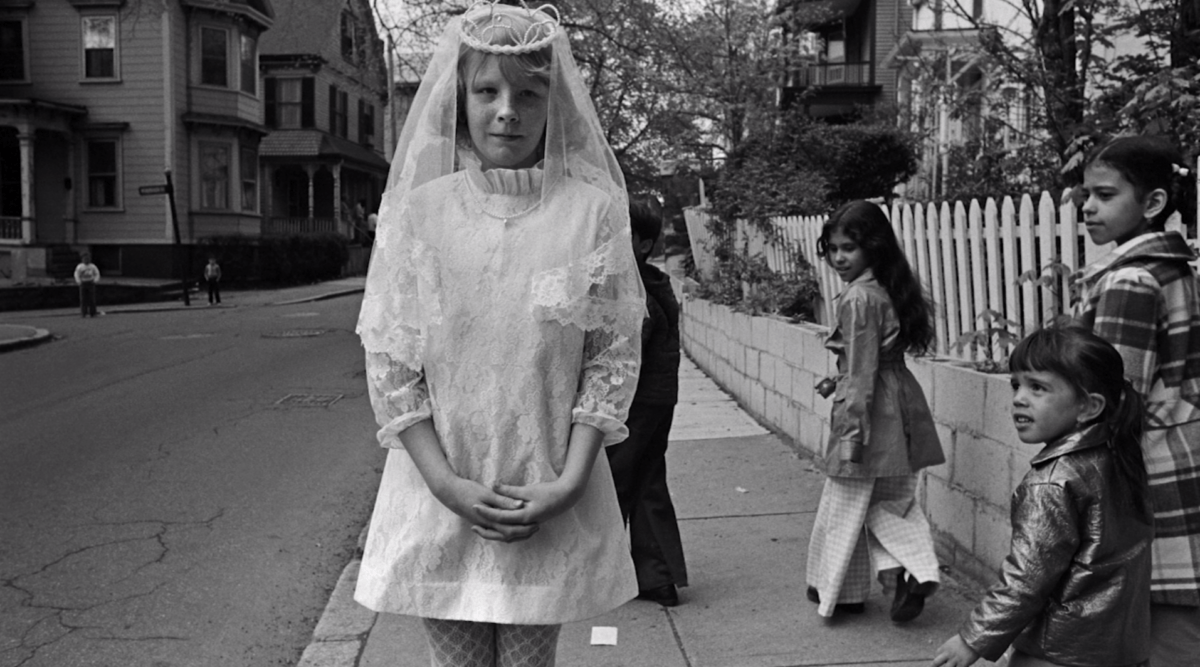
First Communion, Dorchester, Massachusetts, 1973 © Eugene Richards
For instance, Richards’s photograph of a woman holding her newborn child, or an image of a woman with a dislocated shoulder seeking treatment (an image with such classical composition and light that it stops me in my tracks), or his depiction of Will McGowan sitting at a table in his house in Arkansas amidst a stack of dishes and an empty iron skillet, offer poignant glimpses into the lives documented in In This Brief Life.
Richards’s connection with people around the world transcends the superficial nature of a photographic assignment. “When I got an assignment for Time or Life, I’d have a week, or two, but sometimes it was only four days, and you have to rely a lot on your interpreter. Some assignments were difficult because I ran into some cultural suspicions from some people,” Richards recounts when I asked about assignments in places like Honduras, Lebanon, or Niger. “Oftentimes men weren’t allowed to visit with women in their homes or hospitals, but the nurse or interpreter I work with allowed me to have access to these spaces.”
It’s obvious that he immersed himself in the lives of those he sought to document. This immersion, born out of a genuine desire to understand, allows In This Brief Life to transcend the stereotypical trap of voyeuristic photography. Instead, the images become a mirror reflecting the shared humanity that binds us. His work captures the spirit of a communities navigating the complex interplay of history, identity, and socio-economic disparity. From dilapidated sharecropper cabins, to farmers in Niger, to the people in his hometown of Dorchester: Richards captures the unshakable spirit that spreads through the communities he has photographed. Each image is an invitation to confront our preconceived notions and biases, to recognize the humanity that persists even in the midst of struggle and seemingly hopeless situations. People are people.
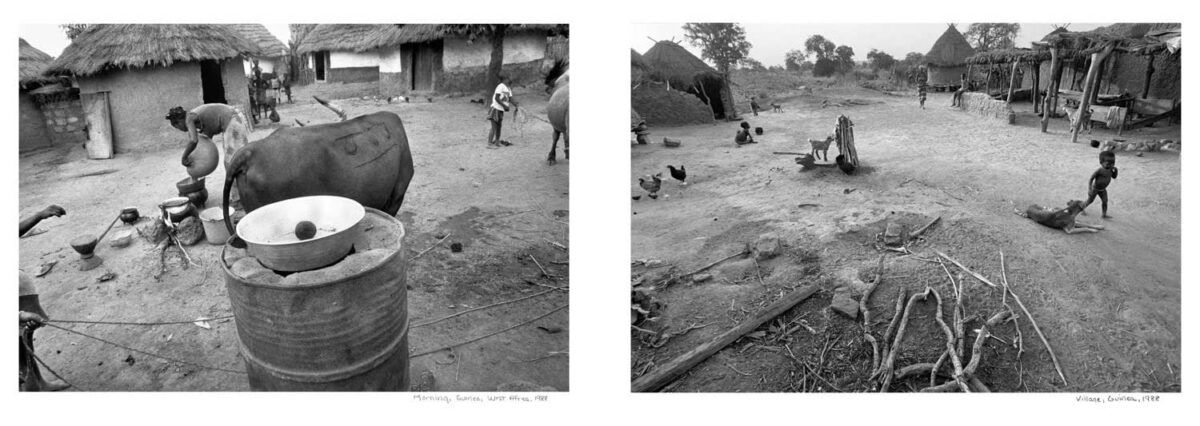
Page spread from ‘In This Brief Life’ © Eugene Richards – Guinea, West Africa, 1988
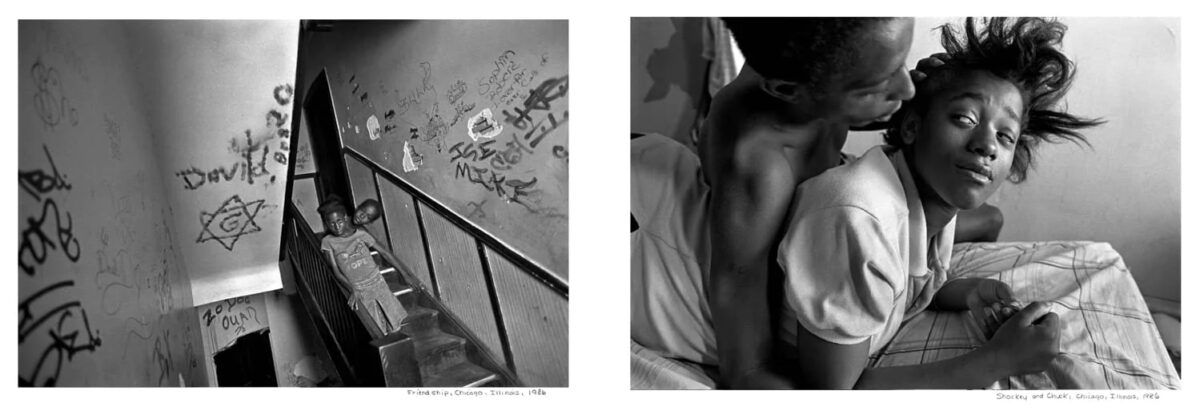
Page spread from ‘In This Brief Life’ © Eugene Richards – Chicago, 1986
As I viewed his photographs, I found myself becoming not just a spectator but a participant in the shared narrative of human experience. These are not historic images taken by staff of the Farm Security Administration – these scenes played out in my lifetime. It is still happening now. The power of Richards’s photography lies not only in its ability to document the struggles but also in its capacity to amplify the voices of the marginalized. Through intimate portraits and unguarded moments, he breaks down barriers that often remove many people from the realities of others. The photographs chosen for In This Brief Life are not just snapshots frozen in time; they are reflections of a persistent reality, a call to action for those who dare to confront the uncomfortable truths embedded in the American landscape and society as a whole.
And so it becomes evident that his work is not a basic documentation of despair; it is a celebration of resilience. It is seen in the stoic faces of the impoverished, the defiant gazes of civil rights activists, and the quiet strength of people living one day to the next. There is an undercurrent of hope. In This Brief Life depicts a visual narrative that resonates with the adamant human spirit, an ode to those who persist against the odds.

Sunday Service, Wilmington, North Carolina, 1990 © Eugene Richards
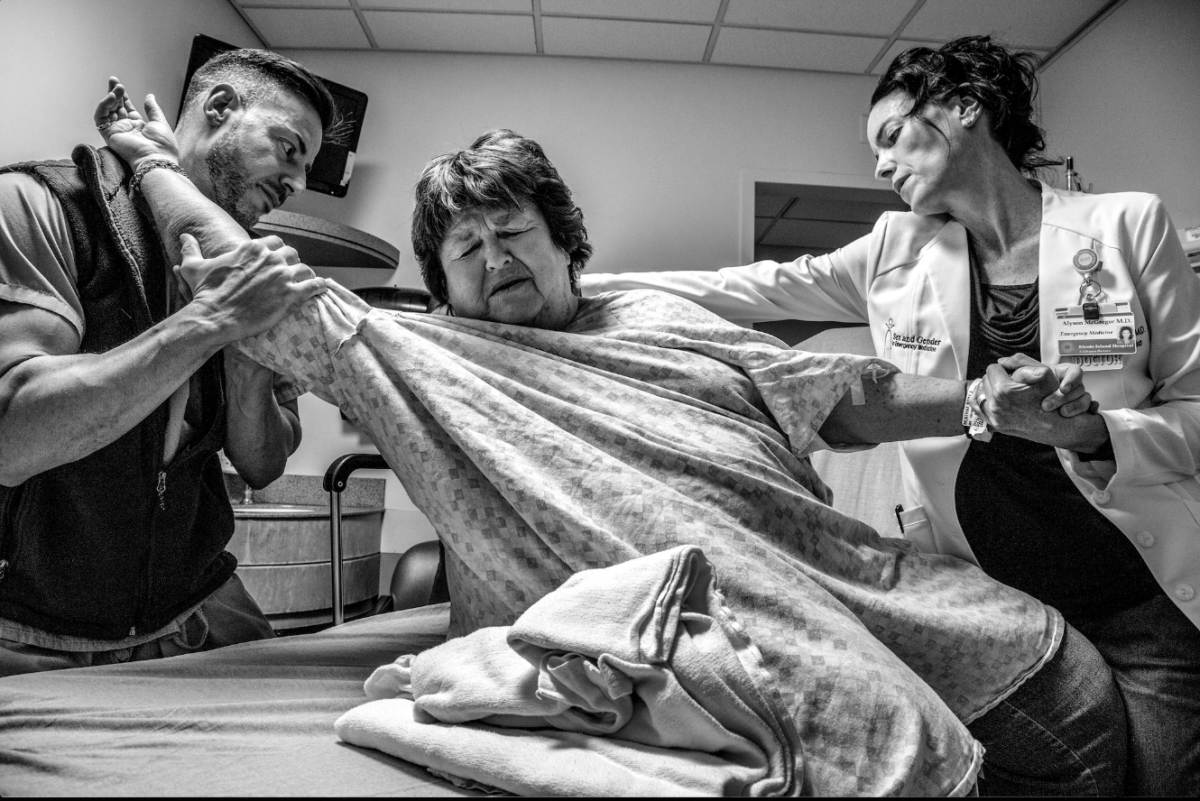
Dislocated shoulder, Rhode Island Hospital, Providence, 2017 © Eugene Richards
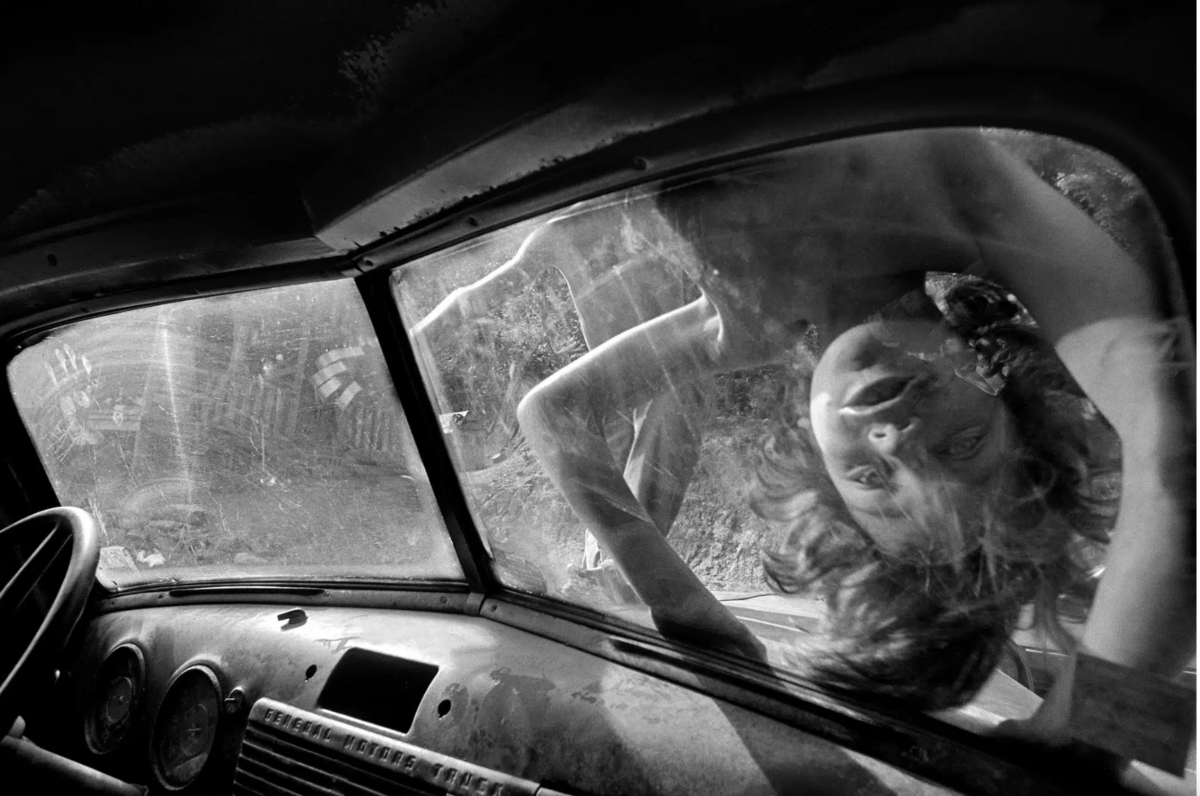
Summer Day, Still House Hollow, Tennessee, 1986 © Eugene Richards
Richards told me he has trouble ‘letting go’ of subjects and projects from the past, and that it’s difficult working projects that involve people in need. He says, “It just keeps going… when you think you’re done with a subject, there it is in the news, its in your face still.” So I asked if it could be a positive thing to not let go of things so easily. Does it help him to see the optimistic side of difficult projects or issues? “Earlier in life, there’s that conflict of wanting to wander around with a camera and find beauty, or instead to focus on the work and do these ‘social’ projects… that’s the dilemma. What do you decide to follow? There’s another world out there, and I think what happens when people get older,” he says reflectively, “the simple things that are beautiful become more beautiful… and more emotive and more precious.”
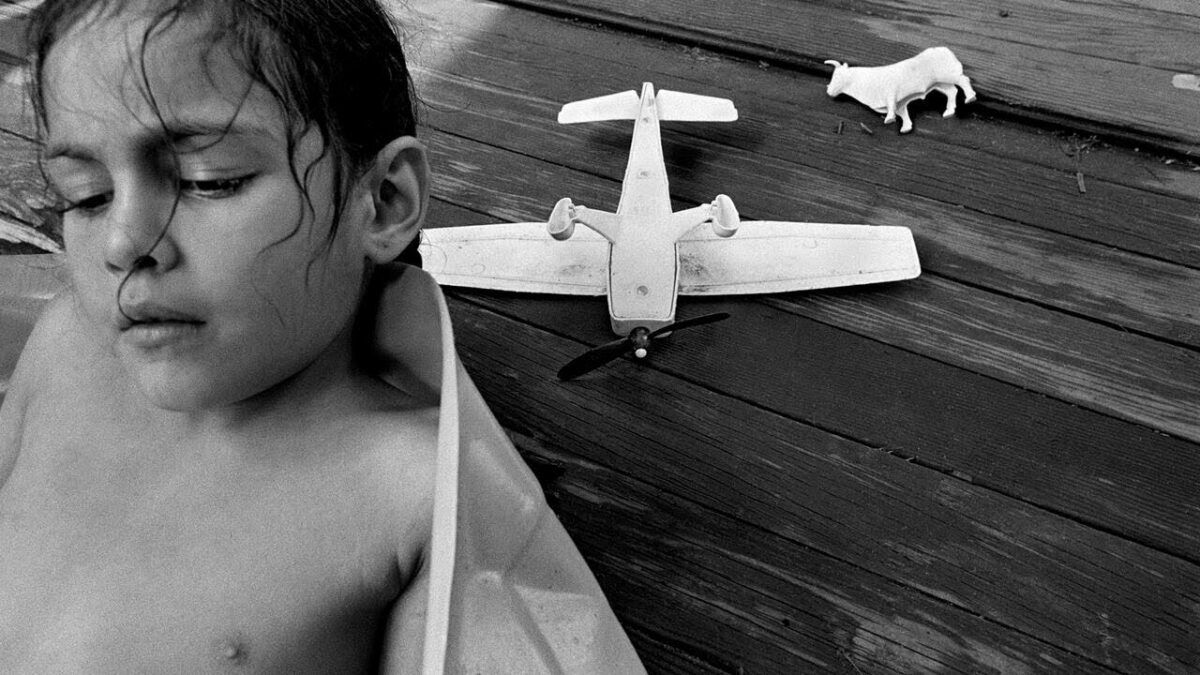
Child in wading pool, Dorchester, Massachusetts, 1978 © Eugene Richards
So Richards’ work could be seen as a call to action for a society grappling with its own contradictions, a reminder that the stories of the marginalized or people in conflict zones are not really on the margins, but rather central to the fabric of our shared humanity. During our conversation, Richards adds to his opinion about optimistic viewpoints of difficult projects, “Just when you think you’ve done enough, just when you think you’re done, you find yourself continuing, going on…but we keep getting closer to conflict with China, and goddamn, I just saw information that we have military in over 85 countries, and over 230 million people have been killed due to conflict and wars in the 20th Century. Many people are ignorant… I’m ignorant of this… of how much conflict there is in the world. How do you make a ‘simple’ book in the face of that?”
Yet in an era inundated by a visual barrage, Richards’s ability to cut through the ‘noise’ and capture the essence of the human condition is nothing short of extraordinary. In This Brief Life is not just a photography book; it is a testament to the power of storytelling to transcend boundaries of time, boundaries of society, and cultural differences.
Eugene Richards’s book represents a significant milestone in a career committed to documenting the lives and stories of marginalized individuals. It is a testament to the transformative power of the medium of photography when exercised with empathy and ethical consideration. My conversations with Richards and hearing about the drive behind his work have been sources of inspiration and a reaffirmation of the profound impact that art and photography can have on society. In This Brief Life is not just a book; it is a touchstone guiding us to confront the uncomfortable truths that define the human experience and, in doing so, strive for a more compassionate and equitable future.
::
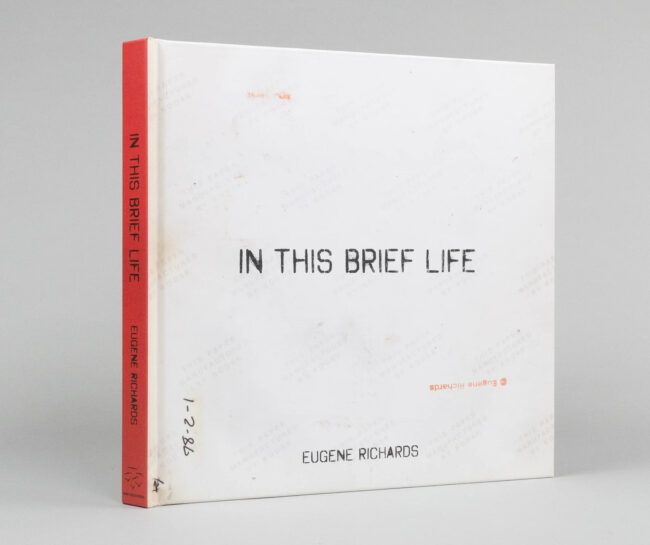
In This Brief Life – Photographs by Eugene Richards
Hardcover: 173 pages
Publisher: Many Voices Press; 1st Edition 2023
::
Eugene Richards was born in Dorchester, Massachusetts. During the 1960s, Richards was a civil rights activist and VISTA (Volunteers in Service to America) volunteer. After receiving a BA in English from Northeastern University, his graduate studies at the Massachusetts Institute of Technology were supervised by photographer Minor White. Richards has published many volumes of photography on such diverse subject matters as poverty in America, women’s breast cancer, the aftermath of 9/11, emergency medicine and the lives of veterans of the Iraq war. He has been a member of Magnum Photos and of VII Photo Agency. To learn more, and purchase a copy of In This Brief Life, visit his website at https://eugenerichards.com
Location: Online Type: Book Review
One response to “Book Review: In This Brief Life by Eugene Richards”
Leave a Reply
Events by Location
Post Categories
Tags
- Abstract
- Alternative process
- Architecture
- Artist Talk
- artistic residency
- Biennial
- Black and White
- Book Fair
- Car culture
- Charity
- Childhood
- Children
- Cities
- Collaboration
- Community
- Cyanotype
- Documentary
- Environment
- Event
- Exhibition
- Faith
- Family
- Fashion
- Festival
- Film Review
- Food
- Friendship
- FStop20th
- Gender
- Gun Culture
- Habitat
- Hom
- home
- journal
- Landscapes
- Lecture
- Love
- Masculinity
- Mental Health
- Migration
- Museums
- Music
- Nature
- Night
- nuclear
- p
- photographic residency
- Photomontage
- Plants
- Podcast
- Portraits
- Prairies
- Religion
- River
- Still Life
- Street Photography
- Tourism
- UFO
- Water
- Zine

A fantastic review on a fantastic photographer.